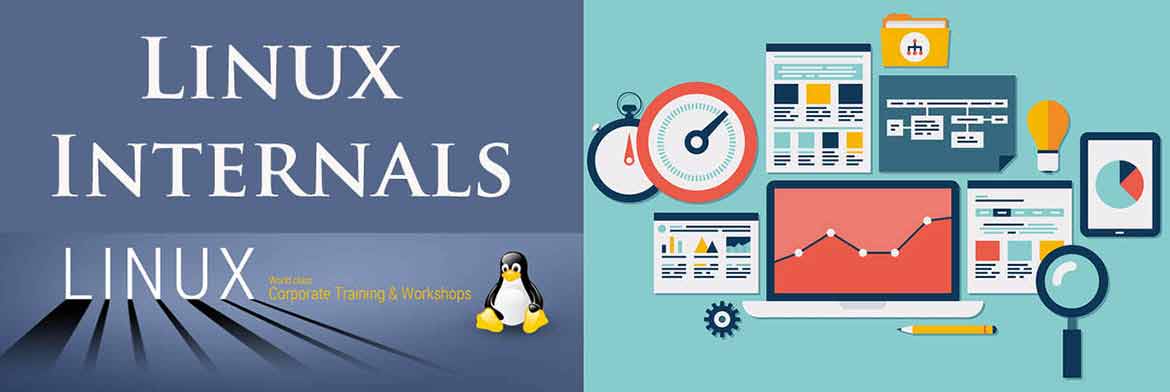
About Linux Internals Course
To learn & explore the basics of the Linux & Kernel internals, scripting and to have a sound knowledge on implementing the Embedded Linux for your Product and services.
Internal Linux training course is designed for applicants or professionals who want to learn basic Linux methods, programming as well as Linux kernel internals. Participants taking this course will grasp both theoretical and practical backgrounds and learn the difference between kernel space and user space programming for Linux-C. They will be able to configure their own kernel and build kernel from the source code of the kernel. Applicants will be introduced to vital tools used to monitor and debug the kernel. This helps sound understanding of the Linux kernel by experienced programmers.
Overview Outline Schedule Course Overview This course is designed to provide a solid understanding of the Linux kernel to experienced programmers. Besides a detailed look at the theory and philosophy behind the Linux kernel, you will also be taking part in extensive hands-on exercises and demonstrations designed to provide you with the necessary tools for developing and debugging Linux kernel code.
List here some specific objectives of this course.
- Learning about Kernel Internals & shell scripting.
- Learning about I/O access and hardware management with Linux.
- Creating Applications and scripts for Applications.
List books to be purchased or books used for this course.
- Understanding the Linux Kernel, Third Edition 3rd Edition by Daniel P.Bovet, Marco Cesati.
- Embedded Linux Primer: A practical Real-world approach, by Christopher Hallinan.
LINUX INTERNALS TRAINING HIGHLIGHTS
Course Duration
30 working days
8 WeekendsLearners
50000
Delivery Mode
Class Room Training
Apply Online
LINUX INTERNALS COURSE CURRICULUM
Program Structure
|
1st Semester
|
||||||
|
Session 1
|
Command Line Basics
|
The Filesystem
|
||||
|
Session 2
|
Shell Basics
|
System Boot Sequence
| ||||
|
Session 3
|
Networking
|
Lab Exercises & Industrial Case studies
| ||||
|
Session 4
|
Embedded Linux
|
Embedded Linux
| ||||
|
Session 5
|
Getting Started
|
Devices Intro
| ||||
|
Session 6
|
File I/O & Kernel
|
Filesystems & U-Boot
| ||||
|
Session 7
|
Memory Technology Devices
Building Embedded Linux
|
Lab exercises & Sample Project
| ||||
